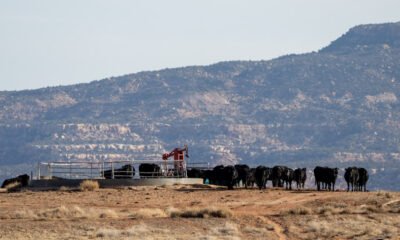2024 election
America’s Perilous Choice: The Cost of Electing Donald Trump

Following the recent election, a distraught commentary reflects a profound disillusionment with the current state of America. The sentiment expresses concern about a nation that appears to have deviated from its foundational principles, evoking fears about its future.
The once celebrated image of America as a “shining city on the hill” now seems to serve as a stark contrast to a perceived descent into chaos and moral decay. Witnessing the return of Donald Trump to the presidency has been framed as a regression rather than a course correction.
Trump’s presidency, marked by scandal and divisive policies, now seems to foreshadow an administration more dangerous than before. His supporters, seen as orchestrating a revival of his agenda, have actively enabled a shift from a flawed leader to a figure with unchecked ambition.
In his recent public statements, Trump articulated aggressive plans that elicit widespread concern. Key proposals include the mass deportation of undocumented immigrants and the establishment of what some view as concentration camps.
Furthermore, Trump aims to dismantle various rights and privileges, including birthright citizenship, oversight of the Justice Department, and implications for supporters involved in the January 6 Capitol events. Observers note a clear intention to exert military power against dissenters.
Potential policies include a national abortion ban and targeting of transgender rights, which have fueled debates over human rights and health policies. Critics argue that his proposed approaches threaten both established norms and the well-being of marginalized groups.
Economic ramifications also raise alarms, with predictions of sweeping tariffs that could impact everyday American families and the elimination of educational funding based on ideological grounds. Such actions have led to fears of an eroding civil society and educational landscape.
Internationally, a withdrawal from NATO could embolden adversaries, jeopardizing long-standing alliances. This development signals a potential pivot in U.S. foreign policy amid ongoing global tensions, particularly with Russia.
Environmental policies are also set to face regression, as initiatives focused on green energy may be reshaped to emphasize fossil fuel use, intensifying concerns about climate-related disasters. The lack of action on gun violence further contributes to the narrative of an unraveling society.
Arizona and other battleground states have become focal points for these looming changes, raising concerns about their repercussions at the community level. The implications are far-reaching, with civil rights advocates deeply worried about the future climate for equality and justice.
As the nation grapples with these developments, there remains a flicker of hope rooted in American resilience. A longing for a return to its core values persists despite the current trajectory, underscoring a collective desire for truth and justice to reclaim their place in the national discourse.
The question remains: Will this America recommit to its foundational ideals, or will it tumble further down a path of disillusionment?


















